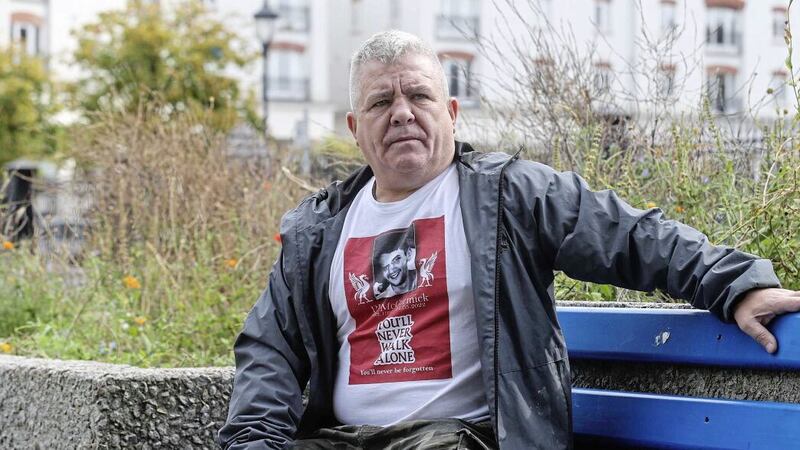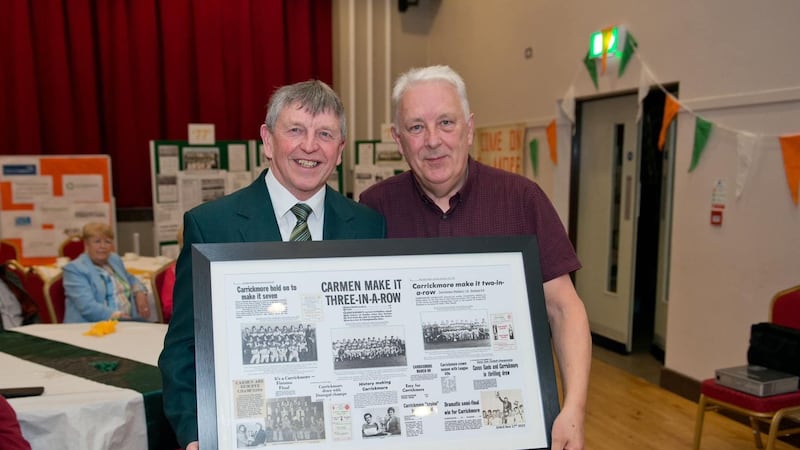THE father of a homeless man who died earlier this year has called for a public inquiry into how people with addictions are cared for.
PJ McCormack was found dead in a house in Lisburn, Co Antrim, in May.
The 31-year-old, who suffered from a drugs addiction, had been released from prison just four weeks before his death.
It was reported in July that 15 people had died in Belfast as a result of drugs overdoses since the start of June.
There were also said to have been a total of 34 such deaths in the greater Belfast area since the beginning of 2022.
Last night, Peter McCormack called for public inquiry into how vulnerable people are treated once they leave prison.
Mr McCormack said his son had served a sentence for shoplifting and stole to feed his addiction.
He described him as a “lovable rogue” and said that he “stole to get money for the tablets”.
He said he has been told his son died of a heart attack, but he believes his death had “definitely to do with tablets and drugs”.
Mr McCormack said people with addictions face challenges when they are released from prison.
“All the people getting released from prison are dying in a few weeks because they are addicted to drugs,” he said.
Mr McCormack said he didn’t believe that people with addictions received enough support while in prison.
He revealed that since his son’s death he has started working with homeless people in his son’s name.
Liz Rocks, services coordinator at Belfast Homeless Services, said more needs to be done.
“There is not the help they need,” she said.
“There needs to be somewhere these people can get help right away.”
She added those in need “should not have to jump through hoops”.
Jack Murphy of McIvor Farrell Solicitors echoed his client’s concerns.
“These tragic deaths of the most vulnerable in our community are a matter of great public concern,” he said.
“Therefore, that is why our client is calling for a public inquiry to be convened to provide accountability and answers for our client and the families of those who have lost loved ones on our streets and to prevent any further lives being lost.
“We will be communicating with the relevant ministers to convey our client’s concerns in this respect.”
In response, a spokesman for the Department of Health said both the health and justice ministers had recently met with families who have been directly impacted “by substance misuse, mental ill health and homelessness”.
“The ministers welcomed the opportunity to speak at first hand with the families and to hear the human stories and tragedies behind the numbers and the challenges they face,” the spokesman said.
“The ministers offered their sincere condolences and thanked the families for their openness and for sharing their painful and personal stories with them at this time and recognised that they have been important advocates for all those families suffering the impacts of homelessness, mental ill health and substance misuse.
“It is important that the voices of service users, their families, and those bereaved are heard as part of the ongoing development work to address these issues.
“The Department of Health is considering further opportunities to meet with families, along with counterparts across government, to hear their stories and provide the opportunity to influence the development and alignment of services.”
An NI Prison Service spokesperson said: “While it would not be appropriate to comment on the circumstances surrounding Mr McCormack’s death in the community five weeks after he left the care of the Prison Service, many people who come into custody have a history of drug and/or alcohol addiction and misuse.
“Along with our healthcare partners in the South Eastern Health and Social Care Trust, our staff will support those in our care to change those behaviours.”








